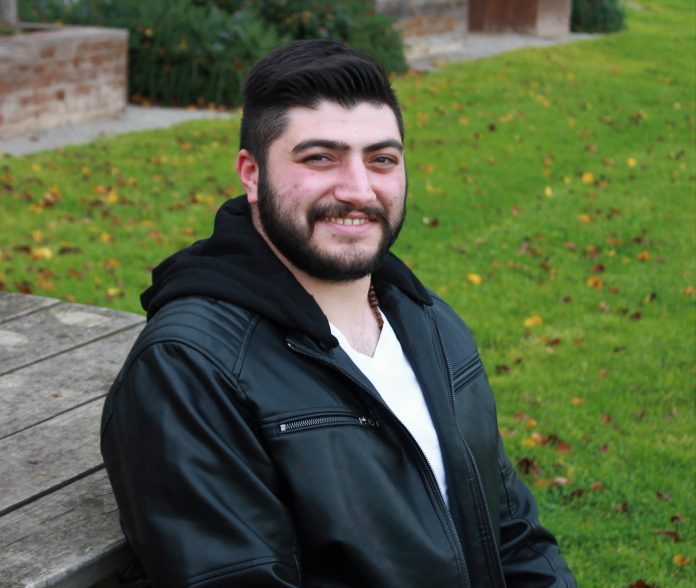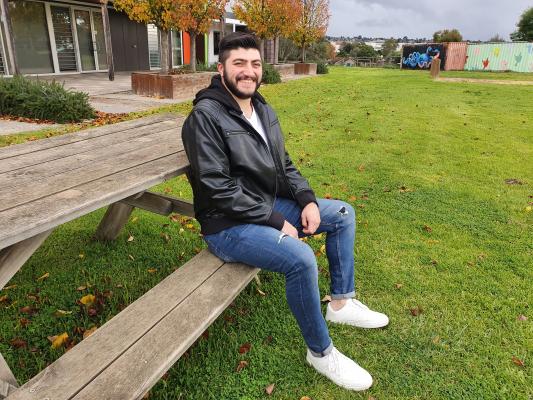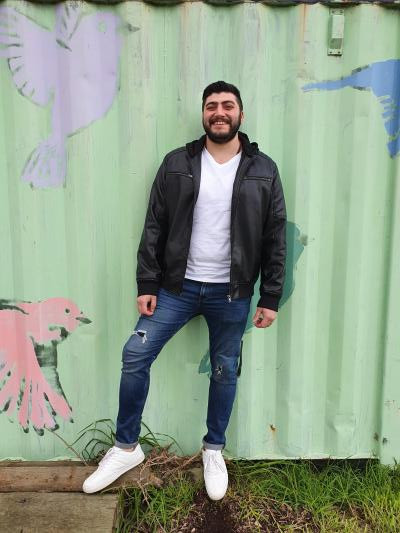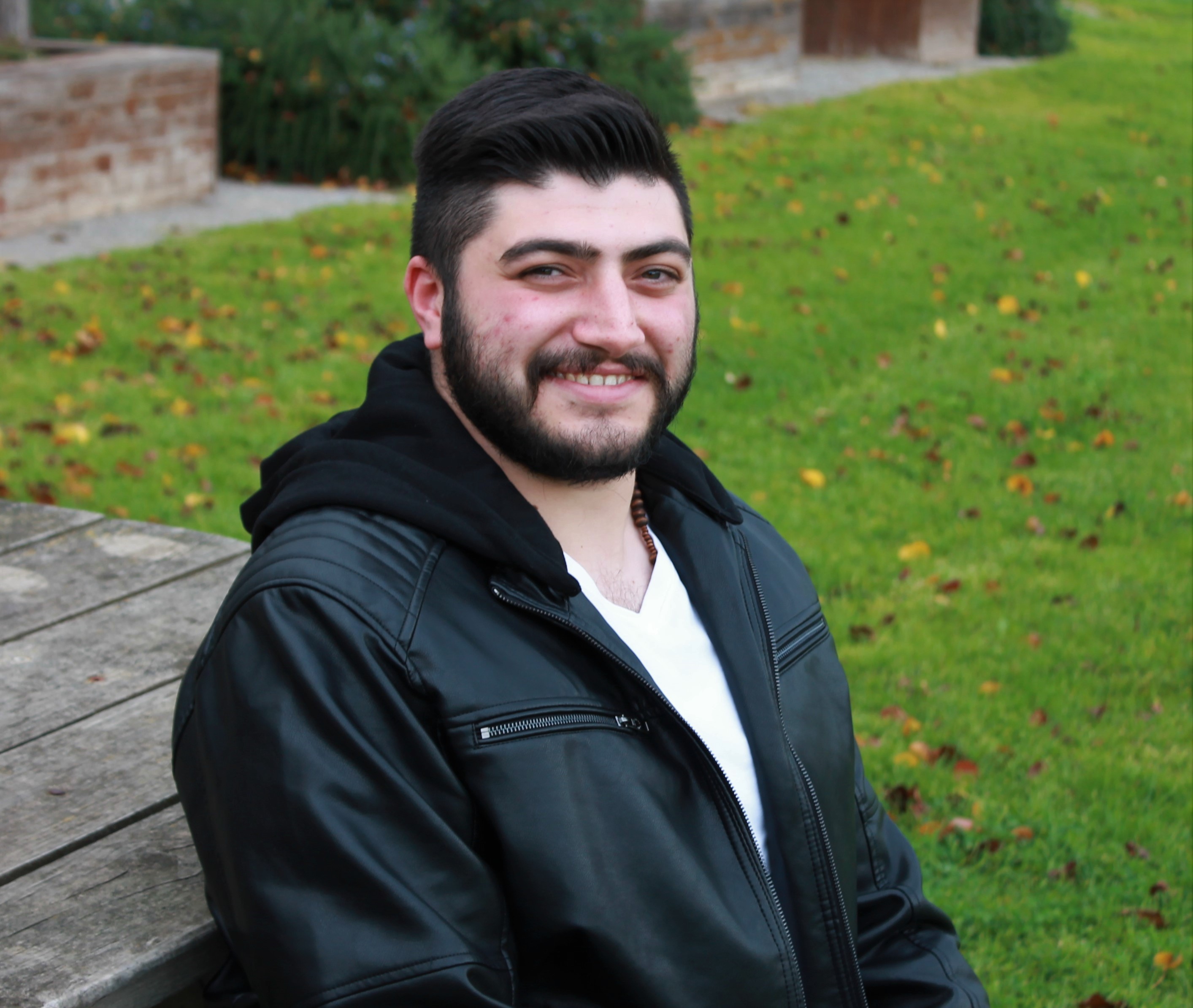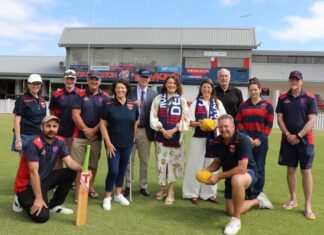An explosion that knocked Yousef Shahoud unconscious was the catalyst for his journey to Australia, but he refused to leave the love of his life behind. He speaks to Luke Voogt about his journey from Syria and his love for, Aussie footy, snags and the coast, for Refugee Week.
Yousef Shahoud was chatting with a friend outside a coffee shop, like any 20-year-old, when the shockwave from a nearby explosion knocked him out.
“I didn’t feel anything – when I opened my eyes, I was in the hospital,” the Syrian refugee remembered.
Yousef was working at the coffee shop in his home city Aleppo, while studying bio-chemistry at university, when the shell hit in 2014.
He sustained shrapnel wounds to his head, neck and knees but the injuries were “minor” compared to the psychological trauma, he explained.
His “whole body” would “shake” or “freeze” when a shell or rocket exploded in a nearby street, he remembered.
“I wish to just delete all these things from my mind but unfortunately I can’t,” he said.
“You feel like too many things are happening in the same moment. First you don’t get the sound, just the vibration.
“You might hear the sound, you might not, because you get scared and you just start thinking in that moment.
“You start to think, ‘I won’t survive’. Sometimes you do funny things.”
He remembers being on the balcony of his parents’ third-floor apartment with his mum when a bomb exploded nearby.
“We didn’t know what to do, I just pushed my mum and she pushed me and we [fell] on the floor,” he laughed.
The Syrian Civil War, which broke out in 2011, has killed tens of thousands and displaced hundreds of thousands in Aleppo alone.
The conflict forced Yousef to give up his education too.
“Suddenly all your dreams have just been destroyed. It’s very frustrating,” he said.
The same year, he met his future wife Reem in his family’s church and fell in love with the “patient” and “smart” woman.
But they were separated when Yousef fled to Lebanon with his parents in early 2015.
Syrian laws and traditions prevented his girlfriend coming with him without them being married, Yousef explained.
She tried to convince her parents to follow them but instead they moved to a “safer part” of Syria, Yousef said.
Yousef’s dad sold his car and family processions to support them in Lebanon, but they struggled to find scraps of work in a hostile and expensive country.
A few months later Reem and her parents came to Lebanon.
“When I was sad and thinking about how I’m going to … survive in this expensive country, that’s when they came,” he said, smiling
“That made my life better.”
In June 2015, his parents applied for asylum through the Australian Embassy and things were looking good for his family, but not so much Reem’s. He refused to be separated from her again.
“I told my parents, ‘look I’m not travelling with you – I’m not leaving her here alone because it might take years to bring her to Australia’,” he said.
They got married on the suggestion of an Australian Embassy official and lodged a separate application.
“That was a bit risky – I took that risk,” he said.
Yousef and Reem had to navigate several bureaucratic obstacles while having their initial application refused.
But he was ecstatic when he finally received a call for him and his wife to come into the embassy for an interview in January 2017.
They arrived in Australia in April, a month after Yousef’s parents.
“The beginning was challenging because it was a new country, new system and new language,” Yousef said.
“The English was familiar to us but the Australian accent is completely different from what we have learnt.”
In February 2018 they had their first child, Stephanie. Reem’s parents have since come to Australia too.
Yousef worked in a pizza shop and completed a laboratory techniques course, but was unable to find work in the field.
Now 26, he has put his bio-chemistry aspirations on hold and works in admin support at multicultural agency Diversitat.
“I’m not thinking about the uni anymore because I’m the father for two kids now, I need to work.”
Despite being confused initially by football where players “pick up the ball”, he soon became a Geelong Cats fan.
“Now I’m very interested in footy,” he said.
“The sausage, I didn’t like it first when I arrived but now I think it’s my favourite.
“The coast [around] Australia is perfect. Back in Syria if you want to go to those rubbish coasts, you have to pay [and] it’s full of dirt.”
While he misses his friends in Aleppo’s tight-knit Christian minority, he believes Australia offers the best opportunities for his children.
“The best thing is my two kids are not going to live the life I lived in Syria.”


